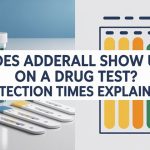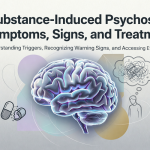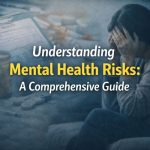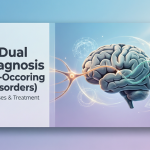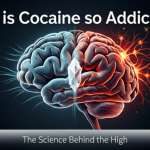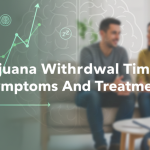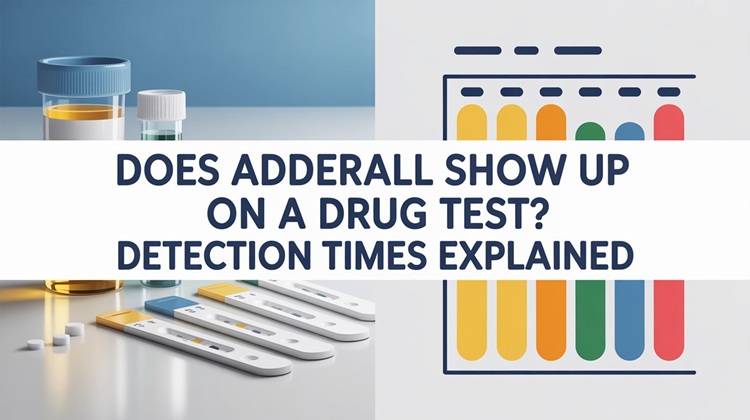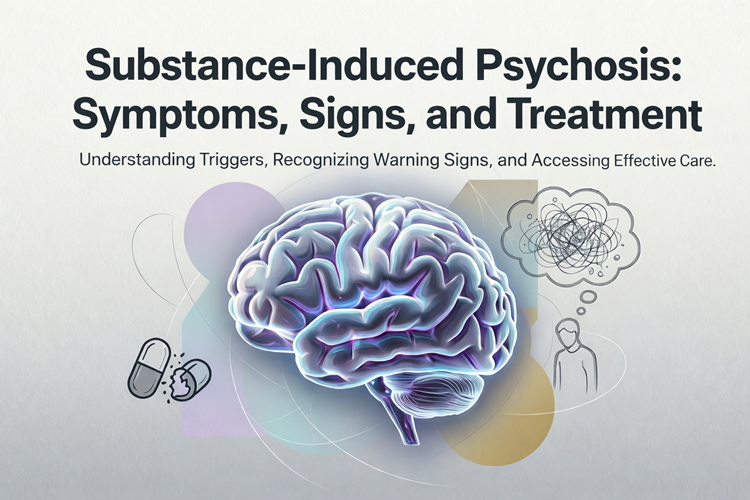ADHD is a chronic condition that is primarily diagnosed in children, but it is crucial to understand that it can also occur in adults. Research conducted recently indicates that approximately 4.4% of adults in the U.S. have ADHD. Many adults can have it and not even know it, writing off their symptoms as stress or simply being lazy. It is therefore important to understand what ADHD means in adults as well as the signs and symptoms so that there can be better control and quality of life.
What is ADHD?
ADHD is a disorder that affects the development of the brain and is marked by symptoms of inattention, hyperactivity, and impulsiveness. ADHD was once thought to be a childhood disorder that children would grow out of as they got older. However, current research indicates that a significant number of the symptoms of ADHD persist well into adulthood. It is equally prevalent among men and women, but the symptoms can vary depending on the individual and other factors such as gender.
ADHD is an abbreviation for Attention Deficit Hyperactivity Disorder. According to the American Psychiatric Association’s, Diagnostic and Statistical Manual of Mental Disorders (DSM-5), it is a persistent pattern of inattention and/or hyperactivity-impulsivity that is disruptive to academic or work achievement or social relations. The disorder is divided into three subtypes: It is further divided into three categories, which include predominantly inattentive presentation, predominantly hyperactive-impulsive presentation, and combined presentation.
ADHD is a widespread disorder that affects millions of people in the Western world and other countries. The National Institute of Mental Health estimates that approximately 4.4% of adults in the United States have ADHD. This is often not detected or mistakenly diagnosed in adults especially women where the patient may present with inattentive symptoms as opposed to the hyperactive ones. Identifying these demographics is useful in appreciating the potential reach of ADHD across all spheres of society.
Symptoms of ADHD in Adults
The symptoms of ADHD in adults can be categorized into three main areas: these include inattention, hyperactivity, and impulsivity. All of these areas involve several behaviors that may greatly influence a person’s day-to-day functioning.
Inattention
Absent-mindedness is one of the primary characteristics of ADHD patients. Adults with ADHD may struggle with:
- Difficulty Focusing on Tasks: They usually have difficulty focusing on activities that need a lot of mental energy. This can be quite complicated, especially in a working or even learning environment where one is supposed to concentrate for a long time.
- Easily Distracted: Distractions in the environment include noise or other things that may capture the attention of the individuals thus making them lose focus. This results in half-done work and low efficiency of the work done.
- Poor Organizational Skills: Organising oneself, organizing important things, and organizing for the future can be very stressful. This frequently leads to late submissions, forgotten meetings, and overall disorganization in the day-to-day existence.
Hyperactivity
Hyperactivity in adults with ADHD may not manifest as the physical restlessness seen in children but can still be disruptive:
- Restlessness and Fidgeting: Individuals with ADHD in adults are usually said to have inner tension. He may agitate, drum his fingers, or have trouble sitting still for extended time durations.
- Difficulty Sitting Still: Sometimes they are even in a place they are supposed to be still; for instance, when attending a meeting, or even a social event, they cannot easily keep still.
- Constant Movement: One can feel like one has to be always active, or cannot afford to rest, which results in a constant state of doing without actually achieving much.
Impulsivity
Impulsivity can have various negative consequences in both personal and professional settings:
- Impatience: Some of the consequences of ADHD in adults include; they may easily become impatient when in a queue or when talking to other people.
- Interrupting Conversations: They may often cut in when other people are speaking, not because they are being impolite, but because they cannot help it.
- Hasty Decision-Making: It is sometimes used in making decisions with little or no regard to the potential outcome which can cause issues in the aspect of relationships, finance, and even career.
100% Confidential Support is Available 24/7
No matter what you’re going through, you’re not alone. Our dedicated team is here to provide a safe, judgment-free space where you can talk openly and honestly. Whether you need emotional support, resources, or just someone to listen.
We’re here for you—completely confidential and always respectful of your privacy. Call us today!
How ADHD Symptoms Affect Daily Life
Common signs of ADHD affect different spheres of an adult’s life: work, interpersonal interactions, and personal experiences. It is important to know these effects to be able to determine the best ways how to minimize them.

Work and Career
Adults with ADHD often face unique challenges in the workplace:
- Challenges in Maintaining Focus and Meeting Deadlines: The problem of procrastination is the inability to focus on certain tasks or activities making one fail to meet set deadlines and thus produce poor performance. This can be detrimental to career growth and employee morale.
- Potential Impact on Job Performance and Career Progression: This is because when one lacks adequate organization and concentration, they tend to produce poor results. This may reduce the possibilities of career progression or chances for promotion, which could cause instability in employment.
Relationships
ADHD can strain personal relationships in various ways:
- Struggles with Communication and Patience: The two behaviors can cause one to make mistakes and misunderstandings which may lead to discrepancies and disputes. It can also be annoying and lead to avoiding certain topics because of the inability to listen to the conversation partner without interruption.
- Impact on Family Dynamics and Friendships: These symptoms of ADHD often lead to problems and conflict within a family unit or even within the peer group. Losing things, forgetting birthdays or important events, arriving late, or even avoiding eye contact and appearing absent-minded can create tension.
Personal Life
Managing daily routines and personal responsibilities can be particularly challenging for adults with ADHD:
- Difficulty in Managing Time and Daily Routines: Maintaining a routine can be quite a challenging task at times. These are poor time management, inability to keep the house clean or perform other routine household duties, and difficulties in managing work and family life.
- Potential for Co-occurring Mental Health Issues: More so, people with ADHD also suffer from other mental disorders including anxiety disorder, depression, and substance use disorders.
Deland Treatment Solutions
Battling with Drug and Alcohol Addition? Remember, you are not alone and we are here to help you!
Managing ADHD
ADHD is a condition that does not have to define the individuals affected by it since there are various ways of dealing with it. These include medication, therapy, lifestyle changes, and support systems.
Medication
Medication is often a cornerstone of ADHD treatment and can significantly reduce symptoms. Medications can assist with increasing attention and decreasing impulsivity. It is vital to know that while medication is often very useful, some adverse effects may include insomnia, anorexia or tachycardia. One must visit a healthcare provider often to get the right medication and its appropriate dosage.
Therapy and Counseling
Therapy can be an effective way to address the behavioral and emotional aspects of ADHD:
- Therapies: CBT is quite useful in teaching people how to cope, increase their problem-solving ability, and change counterproductive thinking.
- Role of Counseling in Managing Symptoms: Counseling can be beneficial and assist people in dealing with the difficulties of having ADHD. It can also deal with other mental illnesses and enhance the mood status of the patient.
Lifestyle Changes
Making certain lifestyle changes can significantly improve the management of ADHD symptoms:
- Importance of Routine and Structure: Consistency in terms of time and activities could also be useful in creating some sort of structure in the patient’s daily life. Hence, it is recommended to use planners, calendars, and reminders to help with organization.
- Techniques for Improving Focus and Organization: Dividing work into smaller segments, setting time limits, and keeping the surroundings clean could improve concentration and effectiveness.
Support Systems
Having a robust support system is vital for managing ADHD:
- Role of Support Groups and Communities: One of the most important ways is to find a community to join ADHD support groups, whether they are live or online. It can be comforting to talk about the difficulties one is going through and learn how other people deal with them.
- Family and Friends Can Help: It is important to let family and friends know about ADHD to get the understanding and cooperation they need. They are helpful in the formation of a schedule, in giving cues, and in giving emotional support and compassion.
ADHD is a complicated disorder that influences different spheres of life. Thus, the identification of the symptoms and their effects is the first step towards proper control. If you think you have ADHD or are having difficulties managing its symptoms, getting an expert’s advice is crucial.

You do not have to face your ADHD alone. To get more information about the treatment of ADHD you can contact us today at (386) 866-8689 or visit DeLand Treatment Solutions. Our team is always ready to help you in your journey towards a fulfilling life.






